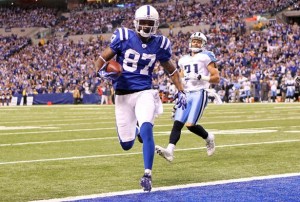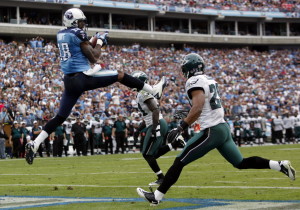There are a few ways to get a lot of receiving yards.
One way is to play with a good quarterback, assuming that is defined as a quarterback who averages a high number of yards per attempt. This is pretty self explanatory.
Another way, though, is to play with a quarterback who throws a lot of passes. For example, we know that Russell Wilson is a much better quarterback than Derek Carr. The stats back this up, too: Wilson has averaged 7.82 Y/A for his career; by comparison, Carr has averaged just 6.54 Y/A for his career. But Carr has averaged 36.2 pass attempts per game, while Wilson is at just 29.5. As a result, Carr has averaged 237 passing yards per game, while Wilson has averaged only 231 passing yards per game. Since every passing yard is a receiving yard, it’s actually been better to play with Carr than Wilson if your goal was to get a lot of receiving yards.
So, you might realize, if receiving yards just equals gross passing yards, then having a good quarterback is only half the equation.
Receiving Yards = (Yards/Attempt) x Attempts
So if you are a receiver, you want to play on a team that has a good passer, or passes a lot, or better yet — both! On the other hand, a wide receiver can’t control these things. We would naturally expect that the same wide receiver would gain fewer yards if he suddenly played for a team with a worse passer and if that team passed less often.
So can we control for this? You might think that we should focus more on percentage of team receiving yards, rather than raw receiving yards. For example, this might mean a receiver with 1,000 receiving yards on a team that threw for 3,000 yards was “better” than a receiver with 1,200 receiving yards on a team that threw for 4,000 yards. After all, the first receiver had 33.3% of his team’s passing game, while the second receiver had just 30% of his team’s passing game.
But there are issues with that, too. Let’s assume that both teams threw 500 passes, so the team that threw for 3,000 yards averaged just 6.0 yards per attempt, while the team that threw for 4,000 yards averaged 8.0 yards per attempt. A team that averages 6.0 yards per attempt is a very bad passing team, while a team that averages 8.0 yards per attempt is a very good passing team. But here’s the question: is it “better” or “more impressive” to be responsible for 33.3% of a very bad passing game or 30.0% of a very good passing game? [continue reading…]


